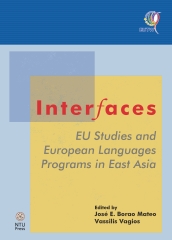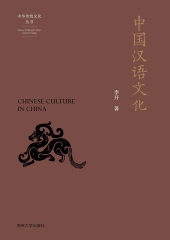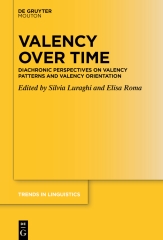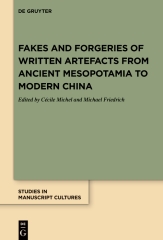- 首頁
- >
- 書籍詳目頁
- 作者: Jose E. Borao Mateo 、 Vassilis Vagios (著)
- 書籍分類: 語言學 ; 英文 ; 文學院
- 出版社: 國立臺灣大學出版中心
- 出版地:臺灣
- 出版日期:2012
- 語文:英文
- ISBN/識別號:9789860352139
- DOI: 10.6327/NTUPRS-9789860352139
Interfaces:EU studies and European languages programs in East Asia
可使用:0人
線上閱讀中:0人
下載閱讀中:0人
借閱天數:0天

推薦採購不提供QR CODE
線上閱讀
本書提供兩種檔案格式,請選擇開啟:
EPUB彈性排版,可依載具大小自動斷行或換頁,較適合小螢幕閱讀。
書籍內容
TOP
Partly due to the European Union's insistent and successful policies on pluriculturalism and plurilinguism, there have recently been voices challenging the prevalent and practical consensus in East Asian educational policies that saw English as the only tool for international communication. Their argument emphasizes that when dealing with countries that are sellers of goods and services, knowledge of the languages and cultures of prospective customers is essential. They also acknowledge the strong correlation between economic and political power and the extensive study of foreign languages.
This book takes a stand on important aspects of this multifaceted argument. The first part addresses the meaning of European Studies, an issue of great relevance now that Europe, in sharp contrast to East Asia, is experiencing a severe economic recession. The second part presents formulas that have been employed by institutions in East Asia in attempting to satisfy the needs of students and scholars for advanced knowledge of European languages as they strive for answers to their research questions on Europe. The final part deals with the difficult issue of linking the syllabuses of European Studies and foreign languages.
The consensus that emerges from the scholars contributing to this book points towards rejecting the addition of large scale resources for the creation of successful programs in outstanding universities. Instead, it seems preferable to maximize existing resources by creating conditions that allow ad-hoc cross campus cooperation, and foster mobility of students through exchange programs so that they can have their own European experience.
This book takes a stand on important aspects of this multifaceted argument. The first part addresses the meaning of European Studies, an issue of great relevance now that Europe, in sharp contrast to East Asia, is experiencing a severe economic recession. The second part presents formulas that have been employed by institutions in East Asia in attempting to satisfy the needs of students and scholars for advanced knowledge of European languages as they strive for answers to their research questions on Europe. The final part deals with the difficult issue of linking the syllabuses of European Studies and foreign languages.
The consensus that emerges from the scholars contributing to this book points towards rejecting the addition of large scale resources for the creation of successful programs in outstanding universities. Instead, it seems preferable to maximize existing resources by creating conditions that allow ad-hoc cross campus cooperation, and foster mobility of students through exchange programs so that they can have their own European experience.
國際計量
TOP
Interfaces:EU studies and European languages programs in East Asia
*若沒有可用的測量指標,代表資料尚在更新,近期將上線。














